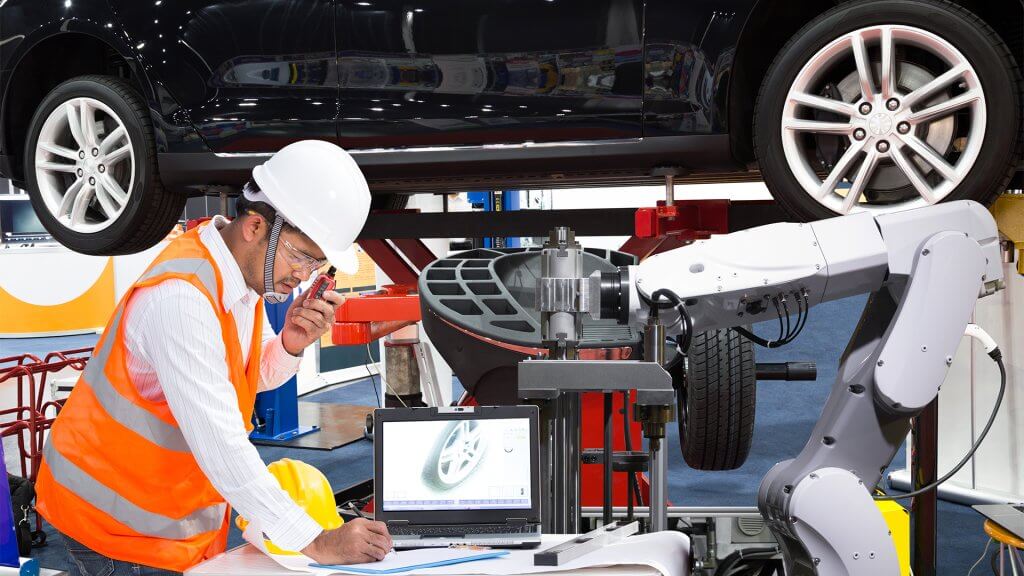
By Kieron White, Founder and Director of Engine
1. What is RAG AI and how is it transforming business operations?
RAG AI is the most important innovation that businesses should be looking at right now. It brings together the benefits of Large Language Models (LLMs) like Chat GPT but enables that kind of AI to work inside your organisation, trained on your documents and data. RAG AI therefore allows teams to access the 80% of company data that isn’t in structured databases: it exists in documents like emails, notes, marketing collateral or social media posts. That creates an enormous number of new opportunities that we are helping our clients discover. RAG, which stands for retrieval augmented generation, is a relatively recent development but it’s driving a lot of the hype around AI as a tool for business. It uses a method called Generative Search to look through large sets of data that can be explored while remaining private. This kind of search is also much better than simple keyword searches because the AI understands the meaning behind questions, providing more accurate and relevant answers. RAG AI hugely reduces the risk of hallucination, which you get when AI is looking more widely across the internet to form a response from a mix of reliable and unreliable information. Businesses can obviously benefit from RAG AI with better-informed decision-making, but it also means they can offer more consistent customer service by generating good quality information without investing in a lot more training or hiring more staff.
2. Which sectors in the UK are seeing the biggest uptake in RAG AI, and what business challenges are being solved with this tech?
Finance, healthcare, retail, and legal services are leading the adoption of RAG AI in the UK. In finance and elsewhere RAG AI is now widely used to improve customer service – giving staff immediate access to the latest regulatory information and market data. Healthcare providers use it to improve patient care by accessing medical research in a similar way. Retail businesses increasingly use RAG AI for better inventory management and to offer more personalised online shopping experiences. Legal firms have also been at the forefront of using RAG AI for document analysis and legal research. These uses have all helped manage data overload and tailor information retrieval to each person’s needs. But we’re starting to see that RAG AI is good for SMEs too, helping businesses grow and improving outcomes in areas like education and social care by providing quick access to relevant information and reducing admin burdens.
3. Is RAG AI the preserve of big business or is it affordable enough for start-ups and SMEs to benefit from also?
RAG AI is not just for big business, but some of the most well-known enterprise solutions are out of reach for a lot of SMEs: an enterprise version of ChatGPT costs upwards of £100k per year, and Microsoft’s Copilot starts at around £20 per person, per month. But the underpinning technology has become increasingly accessible and affordable, making it viable for start-ups and SMEs as well. Companies like ours offer more affordable, scalable solutions that can be tailored to the needs of smaller businesses from as little as £10k per year to build and run. This democratisation of AI technology is what we find exciting: it means that companies of all sizes can take advantage of the power of RAG AI to improve and compete. The benefits and time savings offer immediate returns on the investment, although like many efficiency projects, staff time savings can be quickly absorbed by other work, meaning cashable savings are harder to quantify in the short term.
4. What are the main challenges companies face when integrating RAG AI and how can they be overcome?
Money is the first challenge. For most businesses, AI is a new budget line for 2024/25 that won’t be instantly offset, although in time there will be savings and growth from AI solutions. Integrating RAG AI into business operations can also present challenges around data privacy and the skills you would need to manage and maintain AI and your cloud infrastructure in-house. We think those can be managed by choosing the right expert partners.
Resistance to change is a real challenge too, which feels very familiar after more than 20-years as a digital transformation consultant. To make the most of new AI solutions you must help your teams adopt new habits and quickly make the benefits feel real and positive for everyone. People worry that using AI is somehow ‘cheating’, but the key is recognising how AI acts as an assistant, with the human still firmly in the loop. It’s like when cake mixes were first rolled out in the 1940s: they bombed until companies like Sara Lee and Betty Crocker re-worked the formula a decade later so that customers had to add one or two basic ingredients – often just one egg. Bringing the human back into the experience was better business – and made better cakes.
The other challenge is good data. AI can only work with the data it’s given, so collecting and storing the right data is essential, even if AI can handle it being poorly structured. For example, customer feedback can only be used to train AI if the data can be accessed. This means bringing together email feedback, social media, call centre and ticket-desk data to create a full picture that an AI tool can use to answer future customer questions or provide insights into customer satisfaction.
5. Should employees welcome the RAG revolution or are there negative implications for their careers?
For most professionals – and certainly for leaders – AI is not a threat to your job. That’s because so much of what employees do is about using skill and experience to make a professional judgement, and AI can’t do that. But if someone like you is using AI and you aren’t, then they will have the edge and you might will lose out. AI can automate certain tasks that reduce the need for some parts of the workforce, but it can also create new jobs and opportunities for career growth – who had heard of prompt engineers before 2023? If you embrace RAG AI, you can focus on more strategic and creative aspects of your job, leading to greater job satisfaction and progress – and spend less time on the aspects of your job that feel like drudgery. But it’s crucial for businesses to support their teams through this change by offering training and opportunities and setting an example to help them adapt to the new landscape.
6. How do you envision the role of RAG AI in transforming the UK’s business landscape over the next decade?
The closest comparison is the industrial revolution. Over the next decade, RAG AI will change the landscape completely. It will drive innovation, increase productivity, and enable more personalised and efficient services across every sector. The risk is that gaps will emerge between organisations that can and do invest in AI and those that don’t. We should expect to see a more data-driven approach to decision-making, with businesses using AI to gain deeper insights and stay ahead of the competition.
The widespread adoption of RAG AI will likely lead to the creation of new industries and job roles, including those who will be needed to manage data. Data – in any format – is the rocket fuel for an AI solution. Better data means better AI output. As AI capability increases and technologies shift, their foundation will always be the data that they are trained on. Businesses that understand this and have the best data sets will emerge as the leaders in a future AI-first world.
The technology will keep improving at pace. Open AI’s latest ‘Strawberry’ model, rumoured to be released within two weeks, is expected to bring even better cognitive reasoning and therefore be able to tackle more complicated tasks. This means AI tools will be able to do even more, and better. Our advice to businesses is therefore to start now and start with something simple that immediately addresses a pain point in your organisation. A lot of our customers start with AI assistants that can be put in place quickly and will read, understand, and draw information and new content from their standing policies and procedures. These simple tools can quickly change staff habits and, crucially, help everyone start to identify the more complex problems with that need slightly more complicated solutions, helping them move on to automating workflows and find previously undiscovered insights. Ultimately, RAG AI will bring new business opportunities not currently conceived of. That’s really exciting.





























